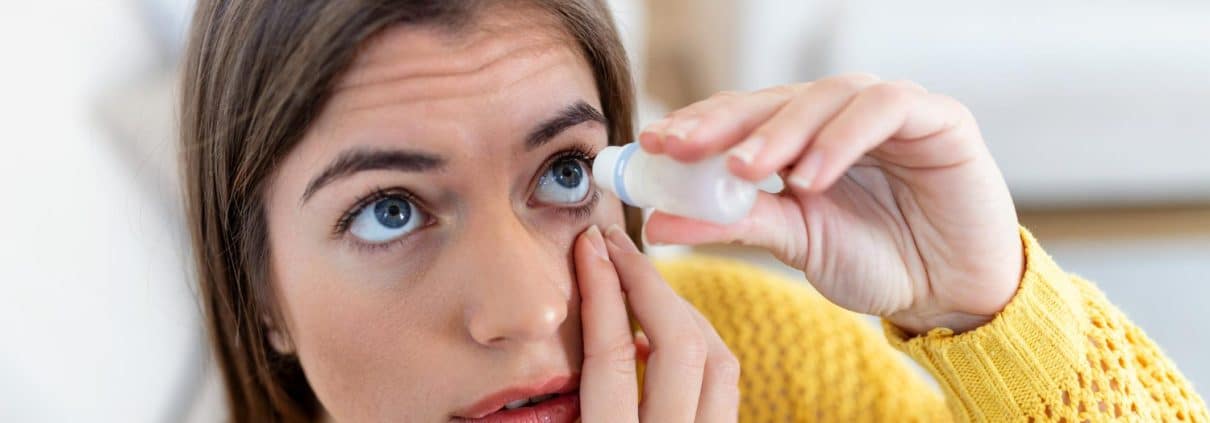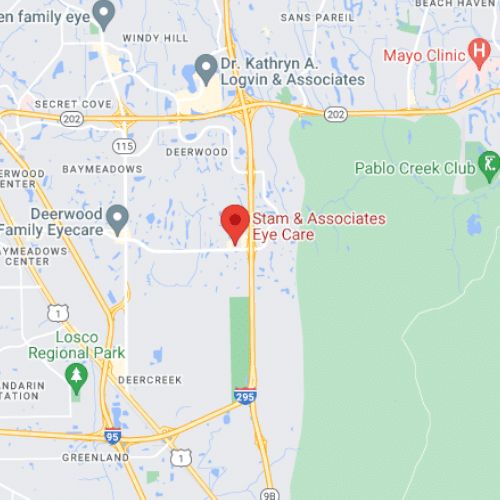What Is Dry Eye Disease?
Dry eye disease (DED) is a common eye condition affecting millions worldwide. It occurs when the eyes do not produce enough tears or when the tears evaporate too quickly, causing dryness, irritation, and discomfort. The symptoms of dry eye disease can vary from mild to severe and significantly impact a person’s quality of life. This article will explore dry eye disease’s causes, symptoms, and treatments.
The professional team at Stam & Associates Eye Care of Jacksonville, FL, is proud to serve the local community with premium eye care services, including treating and diagnosing dry eye diseases.
Causes of Dry Eye Disease
There are several causes of dry eye disease, including:
- Aging
- Hormonal changes in women
- Medical conditions such as rheumatoid arthritis, Sjogren’s syndrome, and lupus
- Environmental factors such as wind, smoke, and dry air
- Extended use of contact lenses or eye surgery
- Certain medications, such as antihistamines, decongestants, and antidepressants
In some cases, dry eye disease can also be caused by a problem with the eyelids or tear ducts.
Symptoms of Dry Eye Disease
The symptoms of dry eye disease can vary from person to person, but they typically include the following:
- Dryness, burning or stinging in the eyes
- Redness or irritation in the eyes
- Blurry vision
- Feeling as if there is something in the eye
- Eye fatigue
- Increased sensitivity to light
If left untreated, dry eye disease can cause damage to the cornea and other structures of the eye, leading to more severe symptoms such as corneal ulcers, infections, and vision loss.
Treatments for Dry Eye Disease
The treatment of dry eye disease depends on the severity and underlying cause of the condition. Some common treatments include:
Artificial Tears
Artificial tears are over-the-counter eye drops that temporarily relieve dry eye symptoms by lubricating the eyes. Many different brands and types of artificial tears are available, and a doctor can help determine which is best for an individual’s specific needs.
Prescription Eye Drops
If artificial tears are not adequate, your doctor may prescribe prescription eye drops that can help reduce inflammation and increase tear production. These eye drops may contain steroids, antibiotics, or other medications.
Punctal Plugs
Punctal plugs are tiny devices inserted into the tear ducts to block the drainage of tears, which can help keep the eyes moist. This can be a good option for people with moderate to severe dry eye disease.
Other Treatments
Other treatment options for dry eye disease may include lifestyle changes (such as avoiding dry or dusty environments and using a humidifier), nutritional supplements (such as omega-3 fatty acids), and surgery (such as salivary gland autotransplantation).
Your Trusted Eye Care Specialist
Dry eye disease is a common and often chronic condition affecting millions worldwide. The symptoms can range from mild to severe and significantly impact a person’s quality of life. Many options are available to alleviate symptoms and prevent long-term eye damage. It is essential to seek treatment if you are experiencing symptoms of dry eye disease. Consulting with an eye care professional is recommended to determine the best course of treatment for your specific case. With proper management, it is possible to manage dry eye disease effectively and improve your overall eye health and well-being.
During your next appointment with the skilled team at Stam & Associates Eye Care of Jacksonville, FL, you can be sure you receive the appropriate care and guidance you and your family deserve.





Leave a Reply
Want to join the discussion?Feel free to contribute!